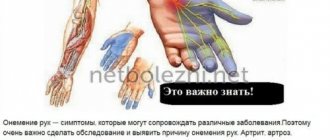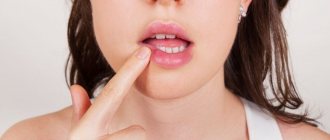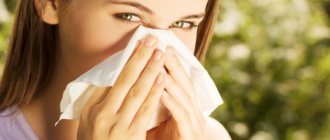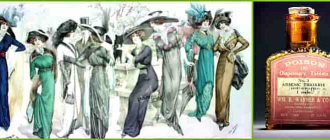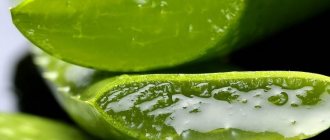Special instructions and precautions
There is little difference between the effective dose of colchicine and the dose that causes symptoms of toxicity, meaning that even a small increase in dose can cause acute symptoms of drug toxicity. If you experience symptoms such as nausea, vomiting, abdominal pain, and diarrhea, stop taking colchicine and call your doctor immediately.
Talk to your doctor or pharmacist before using this medicine. if you have or have had one or more of the following conditions in the past.
- if you have problems with the liver and kidneys
- if you have cardiovascular disease
- if you have problems with the gastrointestinal tract
- if you are an elderly and weak person
- if you have a blood disorder.
Colchicine may cause acute bone marrow depression (loss of some white blood cells (agranulocytosis), platelet deficiency (thrombocytopenia), decreased red blood cell count and hemoglobin due to insufficient red blood cell production (aplastic anemia).
You will need to have regular blood tests to monitor any changes.
If you experience symptoms such as fever, sore mouth, sore throat, prolonged bleeding, bruising, or skin problems, stop taking this medication and call your doctor immediately. These may be signs of a serious blood problem and your doctor may direct you to get blood tests immediately.
Long-term use of colchicine can lead to vitamin B12 deficiency.
Children and teenagers under 18 years of age
Colchicine should be prescribed to children only under the supervision of a medical specialist. There is no data on the effect of long-term use of colchicine on the body of children.
Other drugs and Colchicine
Tell your doctor or pharmacist if you are taking, have recently taken, or may start taking any other medications.
In case of long-term treatment, regularly monitor blood counts. If you have liver or kidney disease, consult your doctor before taking this drug.
When you use colchicine with the following drugs, you are more likely to experience side effects and these may be severe. You should talk to your doctor or pharmacist if you are taking:
- erythromycin, telithromycin, clarithromycin, and azithromycin (some antibiotics, medicines used to treat bacterial infections). The use of these antibiotics during treatment with colchicine may cause intoxication. If possible, do not take these antibiotics while being treated with colchicine. If treatment with other drugs is not possible, the doctor should reduce the dose of colchicine and constantly monitor your condition.
- ketoconazole, itraconazole, voriconazole (antifungal drugs). You should not use these drugs while you are being treated with colchicine.
- ritonavir, atazanavir, amprenavir, saquinavir, nelfinavir, fosamprenavir and indinavir (protease inhibitors used to treat HIV infection). You should not use these medicines while being treated with colchicine.
- verapamil, quinidine and diltiazem (medicines used to treat heart disease).
- cyclosporine (immunosuppressant).
Tell your doctor or pharmacist if you are taking any of the following drugs:
Taking the following medications while being treated with colchicine may cause serious muscle disease (myopathy) and muscle tissue breakdown, which is accompanied by muscle cramps, fever, and a red-brown discoloration of the urine (rhabdomyolysis):
- simvastatin, fluvastatin, or pravastatin (statins, medications used to lower cholesterol)
- fibrates (medicines that lower cholesterol and some fats in the blood)
- digoxin (a medicine used to treat heart failure and arrhythmias).
- cimetidine (used to treat intestinal or stomach ulcers) and tolbutamide (used to lower blood sugar). They may enhance the effects of colchicine.
- vitamin B12 (cyanocobalamin). Colchicine may reduce the absorption of vitamin B12 from the gastrointestinal tract.
Taking Colchicine with food and drinks
Do not drink grapefruit juice while taking colchicine.
Pregnancy, breastfeeding and fertility
If you are pregnant or breastfeeding, think you may be pregnant, or are planning to become pregnant, consult your doctor or pharmacist before using this medicine.
Women of childbearing age
Treatment of gout
Women of childbearing potential should use effective contraception for and for at least 3 months after stopping colchicine treatment for gout. If pregnancy nevertheless occurs during this period of time, genetic counseling should be performed.
Pregnancy
Gout treatment:
You should not use colchicine if you are pregnant or plan to become pregnant. If, however, pregnancy occurs during treatment with colchicine or within 3 months after stopping treatment, genetic counseling should be considered.
Treatment of familial Mediterranean fever (periodic disease):
Because familial Mediterranean fever (periodic disease) without treatment with colchicine may also adversely affect pregnancy, the use of colchicine during pregnancy should be weighed against the potential risks and may be considered if there is a specific clinical need.
Lactation
Colchicine passes into breast milk.
Nursing mothers with gout should not take colchicine.
A decision must be made to stop breastfeeding or discontinue colchicine therapy, taking into account the benefits of breastfeeding for the child and the benefits of colchicine therapy for the woman.
Fertility
Gout treatment:
Male patients should not have a child during and for at least 6 months after discontinuation of colchicine therapy. If a woman does become pregnant during this period of time, genetic counseling should be performed.
Treatment of familial Mediterranean fever (periodic disease):
Because familial Mediterranean fever (FME) without treatment with colchicine can also lead to infertility, the use of colchicine should be weighed against the potential risks and may be considered if there is a specific clinical need.
Driving vehicles and operating machinery
There is no data on the effect of colchicine on the ability to drive vehicles and machines.
However, the possibility of drowsiness and dizziness should be taken into account.
Important information about some of the ingredients in Colchicine.
The drug contains sucrose. If your doctor has told you that you have an intolerance to certain sugars, contact your doctor before taking this medicine. Colchicine 1 mg tablets contains the dye E124, which can cause allergic reactions.
This medicine contains less than 1 mmol (39 mg) sodium per tablet, i.e., in fact, “sodium free”
Features of the drug
Colchicine, which affects uric acid metabolism, is produced on a plant basis. The active ingredient of the same name in the drug is isolated from Colchicum splendid. This herbaceous plant has been used in folk medicine for a long time to reduce joint pain and prevent the progression of inflammatory processes.
The drug is produced in tablet form. They are most often white, but sometimes have a slightly yellowish tint. Round, biconvex tablets are scored, which makes it easier to adhere to the prescribed dosage.
The medicine has analgesic and anti-inflammatory effects. After taking it, it is possible to quickly stop an acute attack of gout. In addition, the active substance delays the deposition of uric acid microcrystals in tissues.
Side effects
Digestive tract: nausea, malabsorption syndrome , increased liver enzymes, vomiting, decreased appetite, epigastric pain, diarrhea syndrome vitamin B12 deficiency .
Nervous system: neuropathy , peripheral neuritis , depression .
Hematopoietic organs: thrombocytopenia , neutropenia (agranulocytosis) , aplastic anemia , leukopenia .
Allergic response in the form of measles-like rash , urticaria .
Local reactions manifest themselves in the form of necrosis of surrounding tissues and irritation at the injection site.
Myopathy , azoospermia , disturbances in the renal system, and temporary alopecia are also noted .
Colchicine tablets, instructions for use (Method and dosage)
The tablets are taken orally.
Inflammatory process, gout : on the first day of therapy 3 times a day, 1 mg; on the second and third days of therapy, a double dose of 1 mg is prescribed; from the fourth day of treatment, 1 mg in the evening is indicated. Treatment is possible according to an alternative regimen: an initial dosage of 1 mg, then switch to taking 0.5-1.5 mg, the interval between doses is 2 hours until the pain disappears.
Prevention of gout : take 1 mg in the evening for three months, effective for gout without tophi. No more than 8 mg per day.
According to the instructions for use of Colchicine, the duration of therapy for amyloidosis is 5 years, 1-1.5 mg per day is taken daily.
Interaction
The likelihood of developing myopathy increases in patients with pathology of the renal system while taking Cyclosporine .
Colchicine can be taken in combination therapy with uricosuric medications and Allopurinol .
The drug enhances the effectiveness of sympathomimetic and depressive agents.
Colchicine interferes with the absorption process of Cyanocobalamin .
Thrombocytopenia and leukopenia develop when taking NSAIDs and medications that cause myelodepression .
Drugs that acidify urine and cytostatics reduce the anti-gout activity of the drug. The opposite effect is recorded when taking alkalizing agents.
Overdose
Manifested by severe diarrhea, severe dehydration with a drop in blood pressure, epigastric pain, vomiting, nausea, hemorrhagic gastroenteritis , respiratory depression, convulsions, oliguria , ascending paralysis , hematuria , decreased myocardial contractility.
The development of pulmonary infiltrates, acute renal failure , and hepatocellular damage is rarely recorded. On the sixth day after an overdose, severe inhibition of bone marrow hematopoiesis is possible with the development of coagulopathy , thrombocytopenia , and leukopenia . Patients are treated at a poison control center.
At the moment, no specific antidote has been developed.
Monitoring of electrolyte balance, normalization of blood gas composition, anti-shock measures, auxiliary ventilation, and monitoring of airway patency are required. Hemodialysis has not proven its effectiveness.
Main indications
The drug colchicil is most often prescribed for the treatment of gout. This disease is characterized by acute joint pain due to impaired uric acid metabolism and the deposition of urate in tissues. The drug is indicated for relieving pain during exacerbation of the disease and slowing its progression.
In addition, colchicil is used, the instructions for use focus on this, for the treatment of other pathologies:
- Amyloidosis, when a complex protein-polysaccharide compound, amyloid, is deposited in tissues. This leads to malfunctions in almost all systems and organs in the body.
- Inflammatory diseases in otorhinolaryngology and dentistry.
- Mediterranean fever, which is a hereditary disease and is associated with the deposition of amyloid in tissues. The main symptom is a periodic sudden increase in body temperature and severe chills.
- Phlebitis. In this case, inflammation of the venous wall occurs against the background of pathologies of an infectious and inflammatory nature.
- Scleroderma. The disease is characterized by the appearance of scar tissue on the skin and internal organs.
- Chondrocalcinosis. In pathology, calcium pyrophosphate crystals are deposited in the area of the articular cartilage and bursa, which causes pain.
Colchicine price, where to buy
In Moscow, as well as throughout Russia (in St. Petersburg, Novosibirsk and other cities), the drug is very difficult to find. You can sometimes find this medication in large and specialized pharmacies in Moscow and St. Petersburg; we recommend calling large pharmacy chains in advance to find out about the availability of the medication.
Large online pharmacies do not sell this product. You can buy medicine at your own risk using advertisements on the Internet, however, you should remember that the product sent may turn out to be a fake or may not be sent at all. The price of the package is very high and amounts to at least 2000 rubles.
In Ukraine (Kyiv, Odessa, Kharkov, and other cities) the medicine is sold. The price of Colchicine in Ukraine is about 500 hryvnia for a package of 40 tablets.
- Online pharmacies in RussiaRussia
